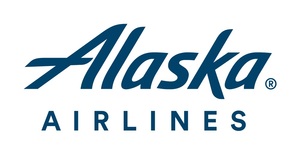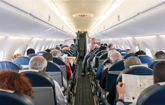Transportation and Aviation Leaders Launch Sustainable Biofuels Initiative
Regional assessment to outline biomass sources for creating renewable jet fuel
SEATTLE, July 12 /PRNewswire-FirstCall/ -- Alaska Airlines (NYSE: ALK), Boeing (NYSE: BA), Portland International Airport, Seattle-Tacoma International Airport, Spokane International Airport and Washington State University today announced a strategic initiative to promote aviation biofuel development in the Pacific Northwest. The first regional assessment of its kind in the United States, the "Sustainable Aviation Fuels Northwest" project will look at biomass options within a four-state area as possible sources for creating renewable jet fuel.
The comprehensive assessment will examine all phases of developing a sustainable biofuel industry, including biomass production and harvest, refining, transport infrastructure and actual use by airlines. It will include an analysis of potential biomass sources that are indigenous to the Pacific Northwest, including algae, agriculturally based oilseeds such as camelina, wood byproducts and others. The project is jointly funded by the participating parties and is expected to be completed in approximately six months.
"By transitioning to a more fuel-efficient fleet and adopting technology to follow more direct flight paths, Alaska Airlines has made significant strides in minimizing the environmental impact of our flying in the communities we serve," said Alaska Air Group Chairman and CEO Bill Ayer. "Through this initiative, we are joining other key stakeholders in our region to explore the development of alternatives to jet fuel that could further reduce our carbon footprint."
"The Pacific Northwest is a global gateway for people, cultures and commerce and aviation is a vital contributor to that process," said Boeing Commercial Airplanes CEO Jim Albaugh. "Developing a sustainable aviation fuel supply now is a top priority both to ensure continued economic growth and prosperity at regional levels and to support the broader aim of achieving carbon-neutral growth across the industry by 2020."
"The Port of Seattle is committed to finding new ways to protect the environment while sustaining jobs and economic growth," said Port of Seattle CEO Tay Yoshitani. "Sustainable biofuels for aircraft could help reduce Sea-Tac Airport's environmental impact even further and also create jobs in an emerging industry."
The assessment process will be managed by Climate Solutions, a Northwest-based environmental nonprofit organization, which will align the effort to sustainability criteria developed by the Roundtable on Sustainable Biofuels. The project objective is to identify potential pathways and necessary actions to make aviation biofuel commercially available to airline operators serving the region.
The project will begin in July with a kickoff meeting, followed by additional meetings throughout the assessment process. The group of biomass producers, refiners, airport operators, environmental and government organizations, airlines, academic representatives and Boeing will address issues such as scale, commercial viability and environmental considerations.
"Washington State University is uniquely poised to tackle this project," said John Gardner, WSU vice president of economic development and global engagement. "It's critical that understanding and policy keep pace with the science and technology as we shape this next era of biofuels that we are convinced will be sustainable."
Because biomass sources absorb carbon dioxide while growing and can have higher energy content than fossil-based fuel, their increased efficiency and use as aviation biofuel could potentially save millions of tons of aviation greenhouse gas emissions.
Air travel currently generates approximately 2 percent of man-made carbon emissions, and the industry has set aggressive goals to lower its carbon footprint, including the use of aviation biofuel when it becomes available. Today flying is one of the most efficient forms of travel based on average aircraft load factors and fuel use per seat-mile. Because the airline industry directly generates approximately 8 percent of global GDP, it is a critical factor in regional and domestic economic growth.
SOURCE Alaska Airlines
WANT YOUR COMPANY'S NEWS FEATURED ON PRNEWSWIRE.COM?
Newsrooms &
Influencers
Digital Media
Outlets
Journalists
Opted In






Share this article